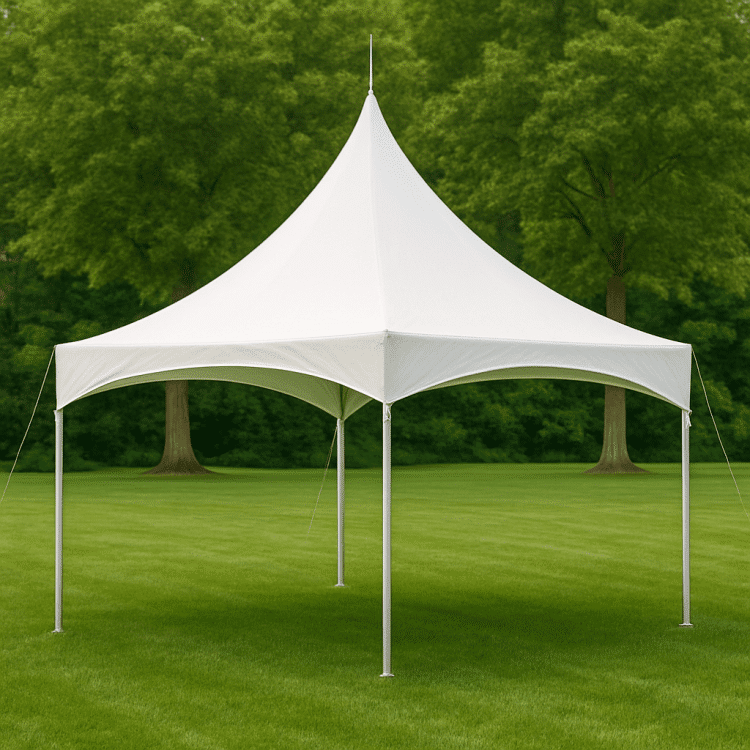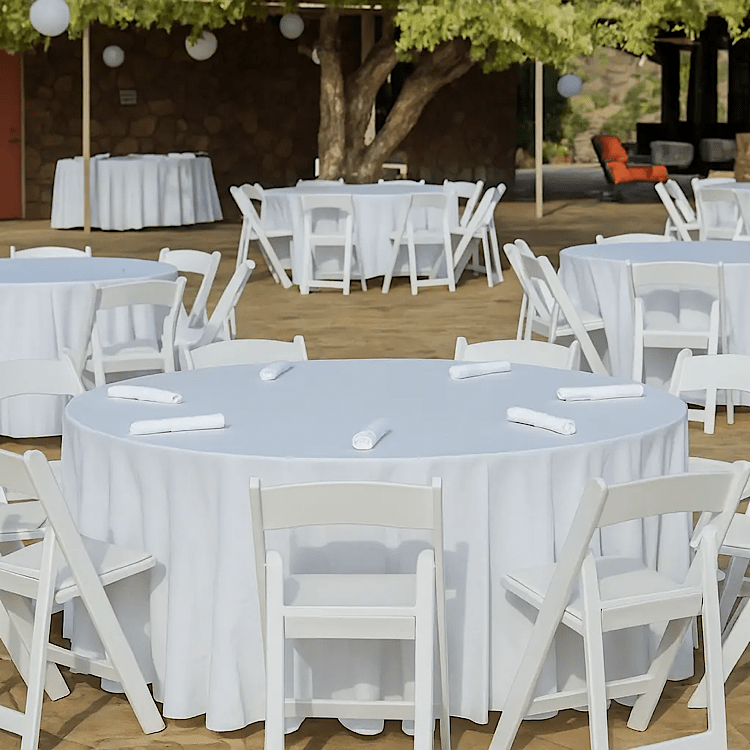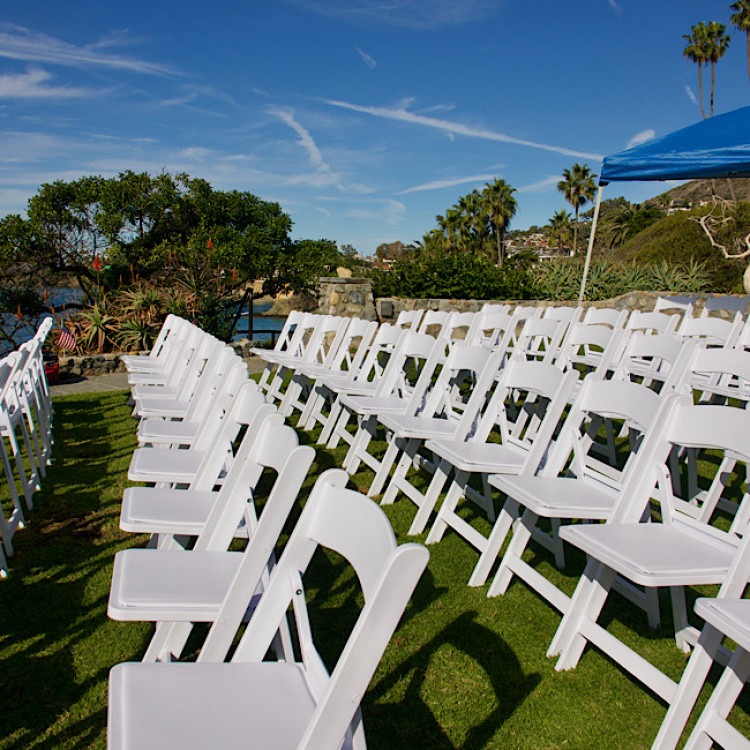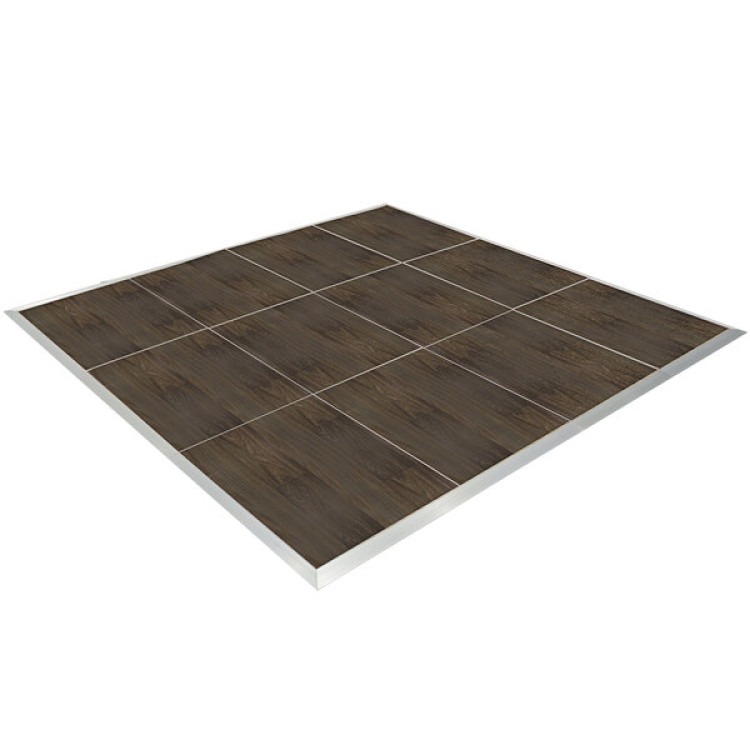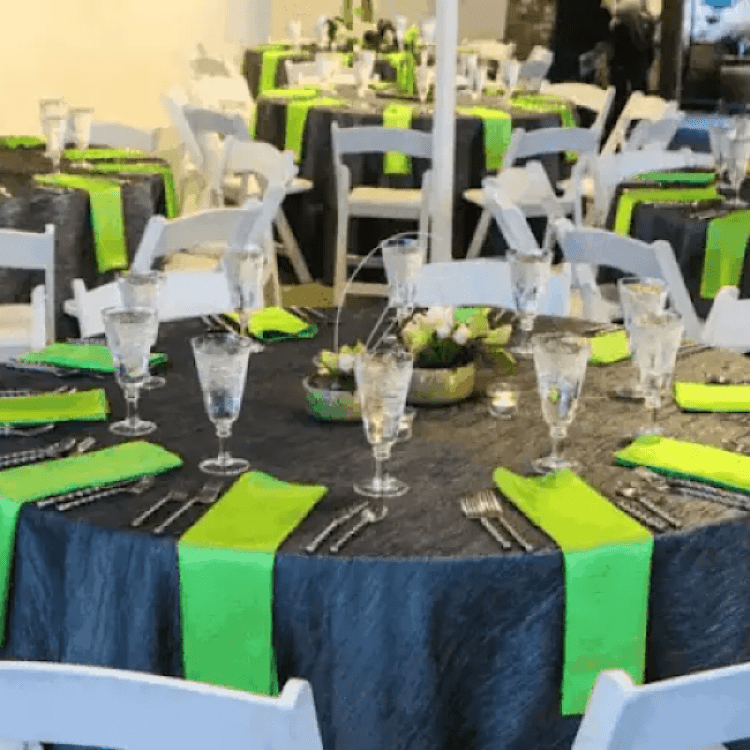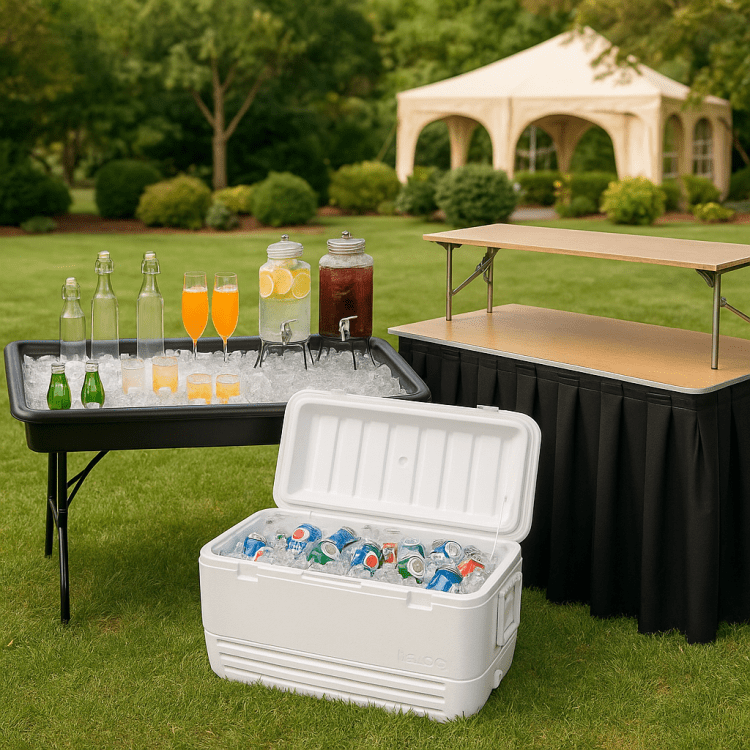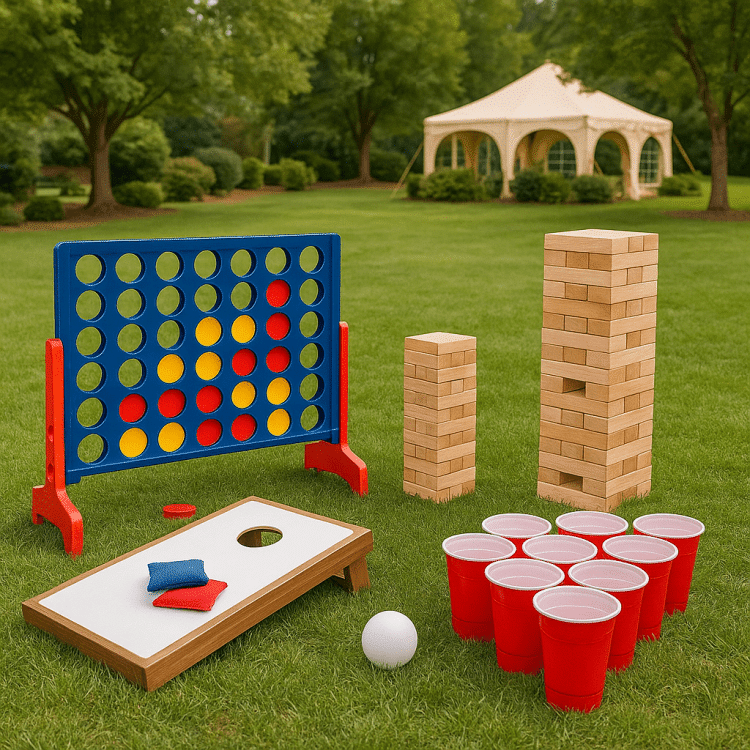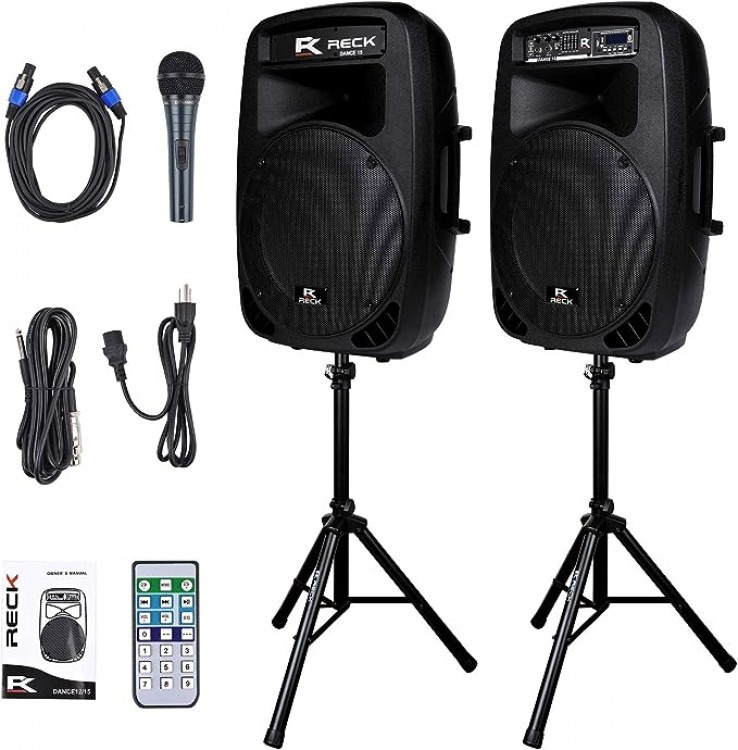Tent rentals play a vital role in the success of outdoor events, offering structure, protection, and a polished atmosphere for various occasions. From weddings and corporate functions to festivals and private gatherings, selecting the right tent ensures comfort and enhances the overall guest experience. Understanding How much do tent rentals cost? is essential for effective event planning and budget management.
Tent rental pricing can vary considerably based on several key factors, including tent size, type, event duration, and additional features such as lighting, flooring, and climate control. Whether hosting an intimate gathering or a large-scale celebration, knowing the breakdown of rental costs helps event organizers make informed decisions and avoid unexpected expenses.
How much do tent rentals cost?
The cost of tent rentals in Mt Dora typically ranges from $100 to $5,500 or more, depending on the size and features. Smaller canopy tents may start at $100, while large frame or pole tents for weddings and galas can reach several thousand dollars.
| Tent Size | Guest Capacity | Base Rental Cost | With Accessories (Estimate) |
| 10×10 (100 sq ft) | 10–15 guests | $100 – $150 | $200 – $300 |
| 20×20 (400 sq ft) | 30–40 guests | $300 – $500 | $600 – $800 |
| 20×40 (800 sq ft) | 60–80 guests | $600 – $800 | $1,000 – $1,400 |
| 30×60 (1,800 sq ft) | 150–180 guests | $1,200 – $1,800 | $2,000 – $3,000 |
| 40×80 (3,200 sq ft) | 250–300 guests | $2,500 – $3,500 | $4,500 – $5,500 |
10×10 Tent (100 sq ft)
A 10×10 tent is ideal for intimate gatherings, small vendor booths, or individual food stations. It comfortably accommodates 10 to 15 guests, making it a practical choice for backyard setups or compact event spaces. Its small footprint allows for quick installation and flexibility in placement, even in tighter areas. While minimal in size, this option can still be upgraded with basic accessories such as sidewalls or lighting for added functionality. It’s best suited for simple setups that don’t require extensive décor or infrastructure, serving as a cost-effective solution for short events or supplementary coverage.
20×20 Tent (400 sq ft)
The 20×20 tent offers a moderate amount of space, suitable for gatherings of up to 40 guests. It works well for casual parties, small receptions, or as a designated lounge or dining area within a larger event. Its square layout makes it efficient for seating arrangements and event flow. This size also allows for a variety of accessories like string lighting, basic flooring, or fans, enhancing the overall guest experience. With balanced coverage and manageable setup requirements, this tent is often used as a standalone unit or combined with others to create customized configurations.
20×40 Tent (800 sq ft)
This mid-sized option serves 60 to 80 guests and is ideal for mid-scale events such as engagement parties, milestone birthdays, or business functions. The rectangular layout offers more versatility for seating arrangements, dance floors, or buffet setups. It provides ample room for additional features like drapery, chandeliers, or flooring, creating a more polished and comfortable atmosphere. Its dimensions make it a reliable choice for events that require both functionality and aesthetic appeal, while still maintaining cost-efficiency. This tent balances size and utility, supporting a cohesive guest experience with room for customization.
30×60 Tent (1,800 sq ft)
Perfect for large events, this tent supports gatherings of up to 180 guests. It is frequently used for weddings, corporate events, or formal celebrations that demand expansive seating and entertainment space. The structure accommodates multiple sections, including dining, dancing, and staging areas, offering a cohesive layout. It pairs well with advanced accessory options such as climate control systems, upscale lighting, and premium flooring. Its size requires more time and labor for installation, but delivers a significant visual and functional impact. This option suits planners seeking an impressive venue alternative with the capacity to manage larger guest counts.
40×80 Tent (3,200 sq ft)
As one of the most spacious selections, this tent can host up to 300 guests, making it ideal for large-scale events such as galas, festivals, and full-scale receptions. Its expansive design supports complex layouts including multiple dining areas, entertainment zones, and vendor booths. It’s highly customizable with features like ceiling draping, advanced lighting systems, and specialty flooring. Due to its size, the setup involves significant planning and labor, but it offers unmatched flexibility and grandeur. This tent is best suited for premium events where both visual presence and functionality are paramount, creating a fully immersive experience for attendees.
Additional Costs Associated with Tent Rentals
- Sidewalls: $1–$3 per linear foot
- Flooring or Subfloors: $1.50–$3 per sq ft
- Lighting: $100–$600 depending on type (string lights, chandeliers)
- Climate Control (Fans/Heaters): $100 – $500+
- Tent Liners & Draping: $200 – $1,000+
- Permits (if required): Varies by city, often $50 – $200
What Are the Different Types of Tents?
Choosing the right tent type ensures not only the success of your event layout but also guest comfort and visual appeal. Here’s a breakdown of common tent styles and their best uses:
Frame Tent
- Freestanding and versatile, frame tents do not require center poles, allowing for a completely open interior layout.
- They are ideal for patios, parking lots, or venues with space restrictions where traditional staking isn’t possible.
- The aluminum frame structure offers stability in various weather conditions and surfaces.
Pole Tent
- Supported by center poles and tension ropes, this tent offers a striking high-peak design that adds elegance.
- Best suited for grassy areas where stakes can be driven into the ground for secure anchoring.
- Popular for weddings and large outdoor functions with plenty of open space.
High-Peak Tent
- Features a tall, dramatic peak and sleek design, making it visually impressive for upscale or formal events.
- Combines the functionality of frame tents with the elegant appearance of pole tents.
- Frequently chosen for weddings, ceremonies, and luxury private events.
Clear Span Tent
- Engineered for large-scale events, this tent provides maximum open space without any interior poles.
- Built to withstand wind and weather, it’s ideal for extended setups or events requiring extra durability.
- Perfect for conferences, exhibitions, or complex layouts with stages, booths, or large crowds.
Canopy Tent
- Lightweight and easy to assemble, canopy tents are excellent for casual use or temporary shade.
- Commonly used at fairs, markets, and intimate backyard gatherings for vendor or guest coverage.
- Offers quick setup and portability, making it ideal for short events or supplementary shelter.
Factors That Affect Tent Rental Pricing
Understanding the various elements that influence tent rental rates ensures accurate planning and realistic budgeting. Below are the primary factors that determine how much you’ll spend:
Tent Size & Guest Count
- The number of guests directly impacts the size of tent required, influencing materials and setup logistics.
- Larger tents require more crew members and longer installation time, increasing labor charges.
- Additional space for stages, buffet lines, or lounge areas may require upsizing the tent beyond seating needs.
- Larger footprints also involve higher delivery and equipment handling fees.
Type of Tent
- Frame tents offer flexibility on hard surfaces and command a higher rate due to structural versatility.
- Pole tents are more affordable but need open space for staking, which may limit placement.
- High-peak and clear-span tents create a more elegant aesthetic, increasing setup complexity and material costs.
- The tent’s construction style can also determine the types of accessories and enhancements available.
Event Duration
- Rental pricing usually includes a one-day event window; longer durations may lead to multi-day charges.
- Setting up a day in advance or breaking down the following day often incurs additional fees.
- Extended use requires more wear on materials, which is factored into pricing by many vendors.
- Overnight staffing or site monitoring may be necessary for multi-day events, increasing labor expenses.
Site Conditions
- Uneven or sloped terrain may require leveling equipment or specialized flooring, adding to the total cost.
- Concrete or asphalt locations need weighted anchors instead of stakes, increasing material and labor use.
- Limited access areas, such as rooftops or courtyards, may need cranes or custom rigging.
- Wet or muddy conditions can increase setup time and demand more manpower for safe installation.
Delivery & Labor
- Delivery within a standard local radius may be included, but long-distance transport incurs mileage fees.
- Early morning or after-hours setup is often subject to premium labor rates.
- Complex venue layouts (multi-levels, restricted access) can extend setup time and staffing requirements.
- Tear-down services may also be charged separately if scheduled outside standard hours.
Time of Year
- Spring and fall are high-demand seasons, especially for weddings and festivals, which may drive up pricing.
- Off-season rentals in summer or winter may offer discounts due to lower booking volumes.
- Sudden weather changes during peak months can create urgent demand, limiting inventory and increasing rates.
- Booking during busy seasons is essential to secure availability and avoid rush fees.
Final Words
So, How much do tent rentals cost? Pricing varies based on multiple factors, including tent size, structure type, duration of use, and optional features such as lighting, flooring, and climate control. On average, costs range from modest options suitable for small gatherings to premium setups designed for large-scale events.
Selecting the appropriate tent solution not only ensures a comfortable experience for guests but also contributes to the overall success and visual appeal of the event. With a variety of styles and configurations available, rental services can accommodate everything from private celebrations to large corporate functions.

